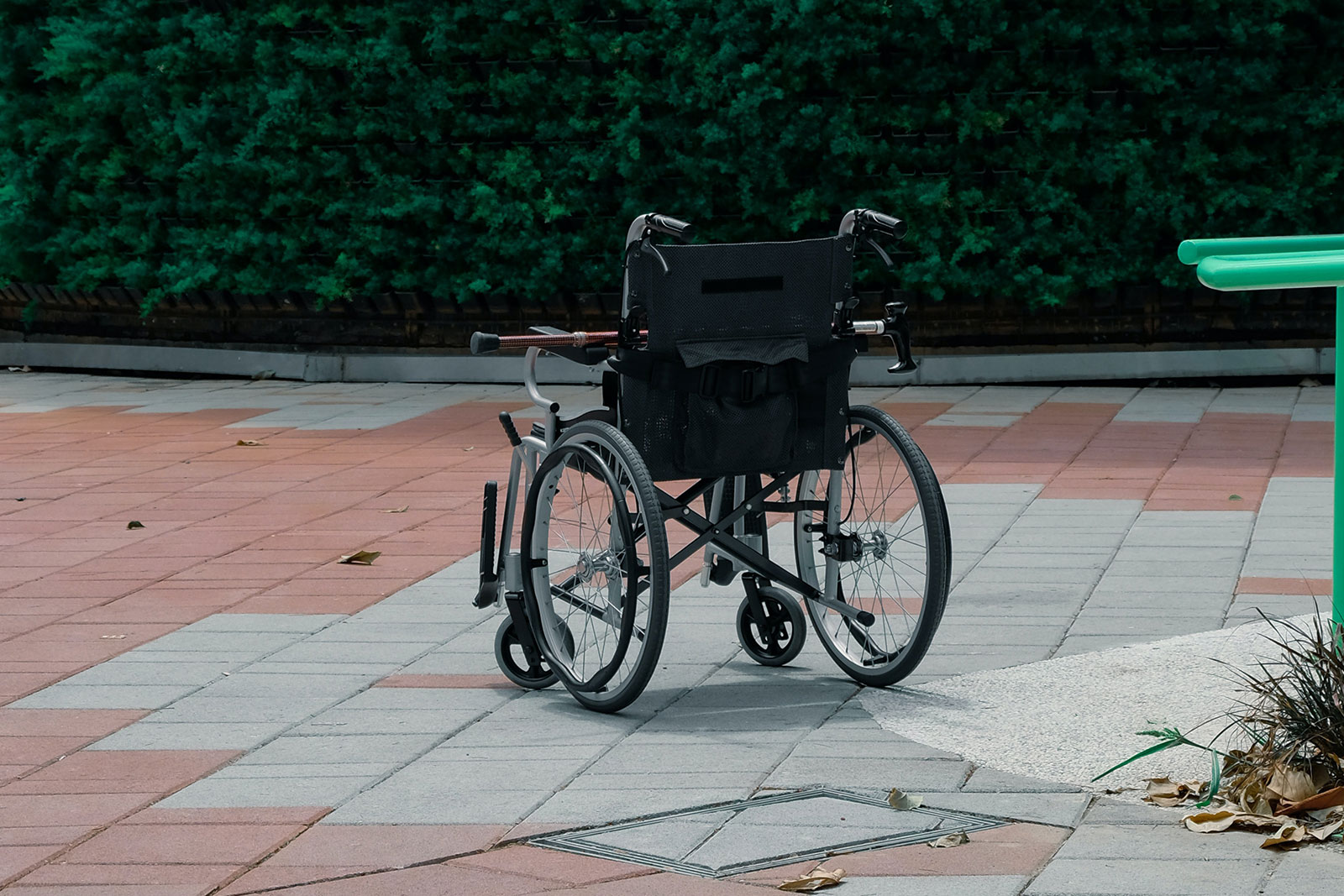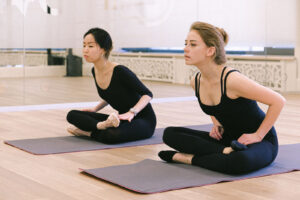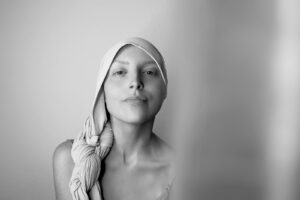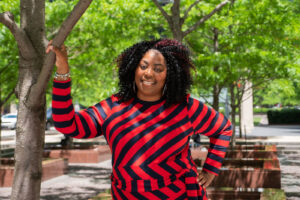For Susan Magasi, amid all the challenges that people with disabilities face in trying to build a stable foundation supporting their full and equal participation in life, access to health and health care—including cancer screening and treatment—is essential.
For many years, Magasi, an associate professor in the departments of occupational therapy and disability studies at the University of Illinois, worked as an occupational therapist in an unsourced area of Louisiana and was dismayed by the unequal access to services and support. She knew from her training that there was a host of technologies and services that could help people with disabilities live rich and meaningful lives, but because of a fragmented health care and social service system, they weren’t getting to the people who needed them most.
“This led me to pursue a research career to try to work towards understanding and addressing barriers to health care access, quality and outcomes for people with disabilities,” Magasi says. Over the last 20 years, she’s worked closely with members of the disability community to help sharpen the focus on the issues of high importance to them.
As part of her efforts, Magasi started the “ScreenABLE” campaign with a grant from the American Cancer Society to look at cancer screening disparities among women with disabilities. “ScreenABLE” produces innovative, evidence-informed short films to educate providers and community members about physical and attitudinal barriers to cancer screening.
“We found that in Illinois, women with disabilities were 22 percent less likely than their non-disabled peers to get a mammogram—based on three waves of data from the Behavioral Risk Factor Surveillance System (BRFSS),” Magasi says. “Our follow-up focus group interviews showed that women with disabilities felt that their health care providers didn’t understand or care about disability and, as a result, they often weren’t providing accessible and appropriate screening services.”
Many women experienced “trauma” within the medical system based on inappropriate and disrespectful care. This made many women reluctant to seek services.
“The findings were interesting but not earth-shattering,” Magasi says. “In fact, disparities in cancer screening had been talked about in the disability literature for close to 20 years at this point, not to mention that the Americans with Disabilities Act [passed in 1990] codified people’s rights to accessible services. Therefore, while the research was interesting it wasn’t having the impact on changing practices that we had hoped and that people with disabilities deserve.”
We must continue to push the envelope on equity and inclusion to help health and cancer care providers recognize that women with disabilities are members of all the communities that they serve.
Magasi realized that a different approach was needed. At the University of Illinois at Chicago, she teaches a graduate elective on knowledge translation—the science of getting research evidence into practice. The students in the class, in collaboration with two women with disabilities who were also cancer survivors, became immersed in the research literature and wrote the script for a “ScreenABLE” video. They worked with professional filmmaker Frey Hoffman of Freydesign Productions to ensure that they were effectively capitalizing on the emotional evocative aspects of filmmaking, while staying true to the research.
“They produced the two-minute video that we were able to share in a variety of public forums with cancer care providers, mammography technologists, insurance companies and community groups,” Magasi says. “It was amazing to see how the video was able to convey the issues in ways that made people want to take action. “
Through a series of brainstorming sessions, the team came up with the idea of ScreenABLE Saturday (modeled on the University of Illinois Cancer Center’s Walk-in Wednesday) as a day dedicated to the provision of free, accessible mammograms for women with disabilities.
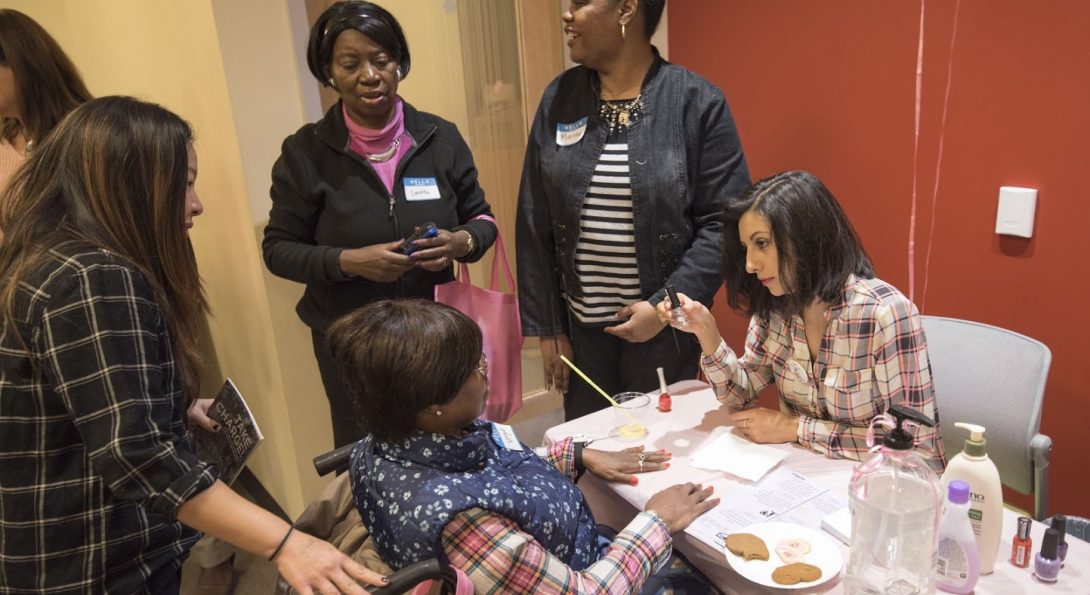
“As momentum grew around the screening event, our disability partners did a reality check and said, ‘Susan, breast cancer screening is not sexy and people aren’t going to come out on a chilly Saturday in November just to get a mammogram.’ So, we brainstormed some more and realized that we needed to do something extra to overcome the treatment fatigue and historical trauma that many women with disabilities experienced within the health care system,” Magasi said.
The solution? Turning ScreenABLE Saturday into a celebration of wellness for women with disabilities through a wide variety of workshops and health promotion activities, including integrated dance workshops; adapted yoga; healthy cooking and adapted gardening demos; a smoothie bar; and a manicure station to provide pampering and stress relief.
“What we’d originally thought would be a drop-in for a mammogram turned into a whole day event filled with laughter, community and wellness activities,” Magasi said.
The Road Ahead
A few years ago, the Centers for Disease Control and Prevention (CDC) created the health promotion campaign “Breast Cancer Screening: The Right to Know,” targeted at women with disabilities and encouraging them to seek out cancer screening. Unfortunately, as Magasi explains, even when women with disabilities do seek out mammography services, they are still encountering significant barriers related to physical accessibility, provider knowledge and attitudes.
And as Magasi points out, in 2017, the United States Access Board released new standards for accessible medical diagnostic equipment, including mammography machines, but adoption and enforcement of these standards languished under the Trump administration’s de-regulation policies. Magasi spearheaded the research for a report from the National Council on Disability advocating for the endorsement and enforcement of the Standards for Medical Diagnostic Equipment.
Unfortunately, in spite of these efforts, women with disabilities remain largely absent from the public health campaigns around breast cancer screening. “We must continue to push the envelope on equity and inclusion to help health and cancer care providers recognize that women with disabilities are members of all the communities that they serve, regardless of age, race or socio-economic status,” Magasi says.
Health care providers and mammography technologists must be better trained in how to provide accessible mammography services. A team at Northwestern University created a modular video instructional course to help mammography technologists build their skills in working with women with disabilities.
“Mammography clinics also must ensure that they have height-adjustable mammography machines to work effectively with people with a variety of functional mobility issues,” Magasi says. When appointments are pre-scheduled, mammography clinics should routinely inquire about access needs so that when women with disabilities arrive for screening, the team is welcoming and ready to provide accessible services and appropriate accommodations.
Lisa Berry Edwards, Prevent Cancer Foundation’s managing director of external affairs, says the conversation around physical and mental differences has really opened up over the past few years, with most offices embracing different ways to service their patients.
“We’re seeing a lot of improvements for people with special needs to get screenings. All medical facilities and doctor offices need to be ADA-compliant. A few examples of how practitioners are evolving their offices: some dentist offices have installed massaging chairs to help reduce anxiety; mammogram facilities are offering low light and stimulus-free environments; other offices feature examination tables that lower and open spaces to make it more comfortable for people with different needs,” Berry Edwards says.
The most important thing is for people to understand their needs and advocate for them. Prevent Cancer Foundation encourages patients to call their doctor offices, ask questions about how they provide care and make requests that will ensure a good visit.
“If the exam space is too tight to comfortably accommodate a wheelchair or if COVID-19 protocols prevent an additional aid, friend or family member from attending or limits support-animal access—that’s something patients should know before they go to their appointment and providers can perhaps accommodate,” Berry Edwards says. “It’s OK to ask questions and it’s OK to ensure that your health care needs are met.”
Magasi hopes that ScreenABLE Saturday can be a model of cancer screening and health promotion programs. “We want to ensure that they create welcoming, accessible and respectful spaces and screening experiences for all people,” Magasi says.

